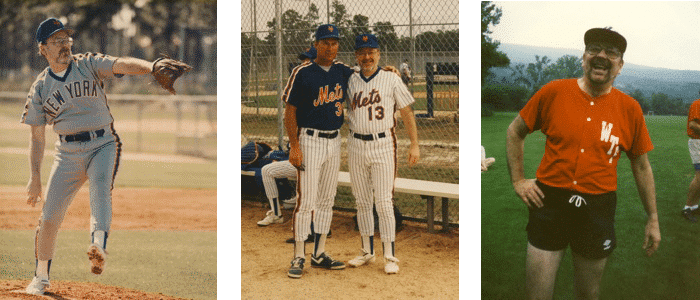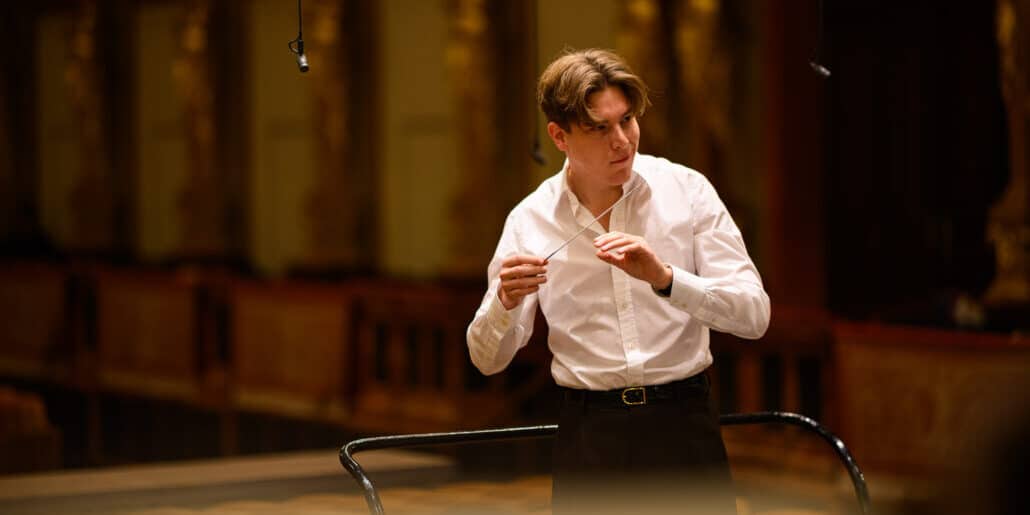Possibly the best opera critic anywhere online
mainColleagues have alerted us to a (fairly) new site on which the veteran US critic Conrad L. Osborne writes forensic reviews of current operas.
Conrad is now 83 so he’s not out every night at the opera, but his take on The Exterminating Angel, for instance, is the least manipulated and the most quietly objective of any that I have read.
And his justification for opera reviews online is spot-on.

Just read him:
And for opera, this is a critical time. Refusal to acknowledge that, a sort of denial by default, is criticism’s greatest failure now. Critics do greater harm through misplaced praise or through indifference, an indolent passing along, than with any considered censure. Opera’s present crisis has two principal components, artistically speaking. (There is also an economic crisis, a crisis of public acceptance. I’ll come to that down the road. For now, let’s stipulate only that these two crises cannot be unrelated.) The first component is creative: not enough new works are proving capable of standing with the masterworks of the classical repertory. This has been the case for a long time. The second is interpretive: the aforesaid masterworks are being inadequately presented, often to the point of being unrecognizable, and so cannot exert their magnetic hold on audiences.
Both components will receive attention here…






Oh, what a delight! I have missed CLO’s reviews since “High Fidelity” bit the proverbial dust. I am pleased to be re-introduced (or re-connected) to his perceptive thoughts and words.
Some welcome heavy lifting. Looking forward to the Lotte Lehmann 2-part series, for one.
This paragraph bears quoting:
…”Two problem areas cry out for special attention–singing, which is our artform’s central means of expression, and production, which is its mode of presentation. With respect to singing, the crux of the matter is easily, if baldly, stated: there is a worldwide dearth of voices of sufficient calibre and coloristic span to enable even basically satisfactory renderings of many of the greatest classical works, most obviously those of Verdi and Wagner, but extending to most of what still makes up the standard repertory. There are plenty of other issues to address (of language and dramatic expression; of musical guidance and the cultural comprehension we call style, and the physical behavior we call acting, etc.), but they all cluster around that one. We have reached the point whereat some of the heavier operas not only cannot be well cast by any single company, but could not be so by drawing on the resources of all companies.”
Got it. No good operas since Puccini, no good singers since Tebaldi and Corelli, no good traditional productions. But opera is, in fact, healthy and growing, the repertory is much more varied that before and Baroque has been restored. Major conductors are investing time (which they often did not before) and hugely important theater directors are forcing reconsideration of the theater in opera.You can ignore that if you want, but it does not mean it doesn’t exist. Upcoming operas in Lyon, for example: La Cenerentola, Le Cercle de Craie (Zemlinsky), La Belle au bois dormant (Respighi), Journal d’un disparu (Janacek), Macbeth (Verdi) and Don Carlos (Verdi). The performances are full and the average age is mid-40s.
Good to know. Also, composers like Schreker have enjoyed a revival, and the restoration of baroque opera is nothing less than a renaissance. But that does not mean there are no critical issues to be addressed: the disaster of Regietheater and the other disaster, postwar new music in the wake of modernism which uses a musical language entirely unsuited for opera – that is, if opera should be more than grotesque parody and cynical sarcasm:
http://www.youtube.com/watch?v=f-p1utKFxCg
True…! We do not need this, destructive.
https://www.youtube.com/watch?v=W7NMlPV-Kdk
But there is also pressure on critics. Freelance writers do a bit better but somehow most get some kind of reaction if articles do not please more than once or twice.
Translation, anyone?
“Szabadfoglalkozású író csinálni egy kicsit jobb, de valahogy legtöbb kap valami reakció ha cikkek nem kérjük, több, mint egyszer vagy kétszer.”
Our butler from Budapest is great at these things.
Sally
A fine thinker and writer, and criticism of this quality is always welcome. But the US-centred perspective and “golden age” nostalgia ( I don’t say defeatism) are limiting (I don’t say distorting). Fair enough for a reviewer of his vintage, I suppose – though there are comparably eloquent octogenarian opera critics elsewhere in the Anglophone world who are still open to progress and innovation.
If “progress and innovation” are absolute goods in themselves, there’s no need for critical thinking – you just see what is, and call it good. If “what is” seems in some way to fall short of providing things whose value seems important, then looking into that shortfall is not “nostalgia.”
Indeed.
But the last century (which by now definitely belongs to the very pastness of past, all in) fell into the trap of the idea, that ‘progress’ and ‘innovation’ are absolute goods in themselves, and in culture made any work of art dependent upon its apparent degree of ‘progress’ or ‘innovation’. Are these two concepts absolute goods in themselves? Certainly NOT, because without the ‘from’, ‘towards’ and ‘why’ they are entirely meaningless terms, like ‘freedom’, ‘equality’ and ‘liberty’. They are context-less, empty terms, like political slogans. And ‘innovation’ for its own sake is dangerous: the guillotine was a progressive innovation, like the A-bomb and the machine gun, but not quite to the benefit of humanity.
Something can only be assessed as ‘progress’ if measured with some standard outside progressive thinking (i.e. outside a world view in which progress is in itself an absolute good). For culture, the only standard available is artistic quality, which can only be described by the experience of cultural goods which have stand the test of time. If cultural goods get better, that is progresss, but they don’t get better because of being progressive (as we can see all around us).